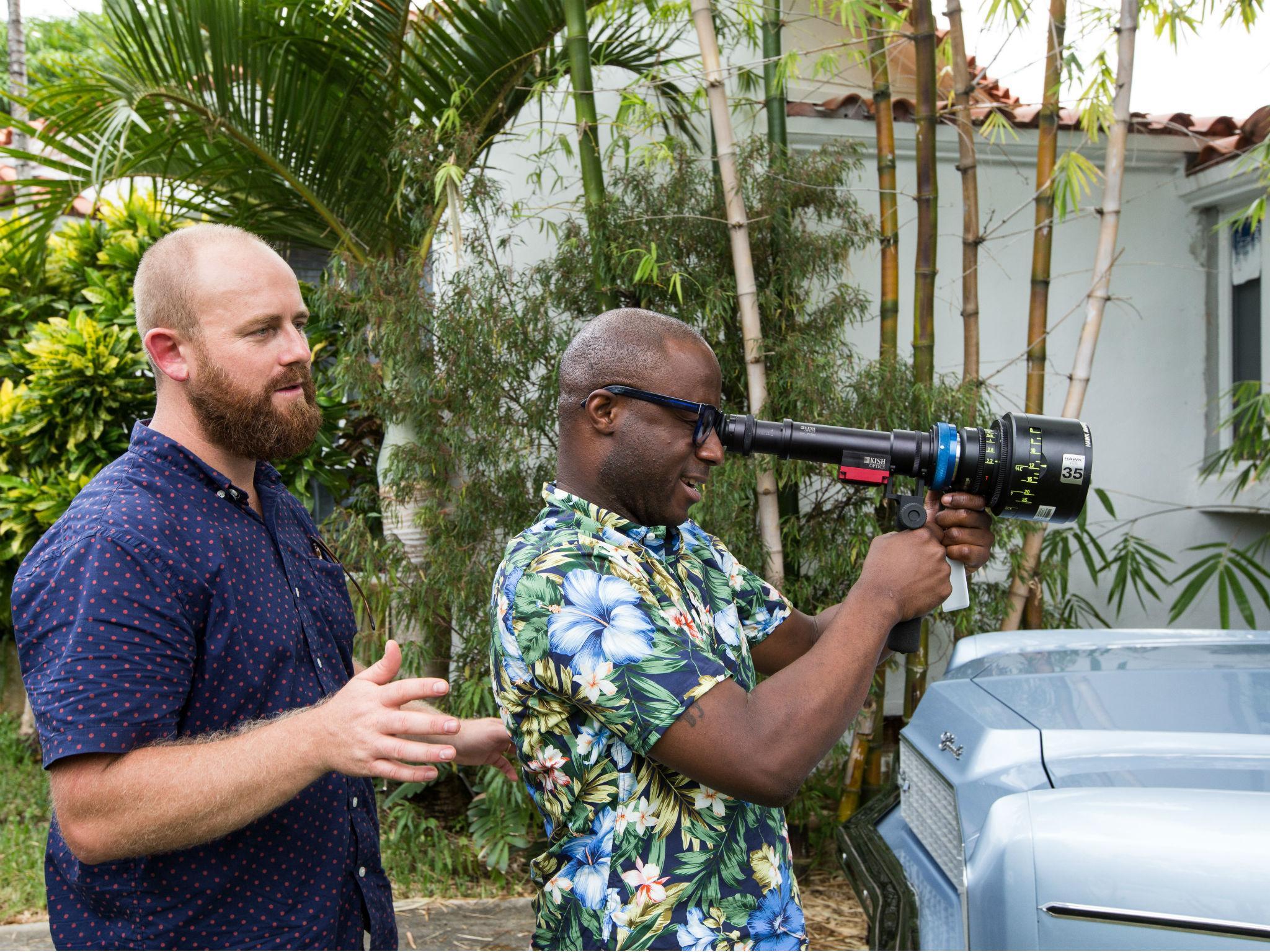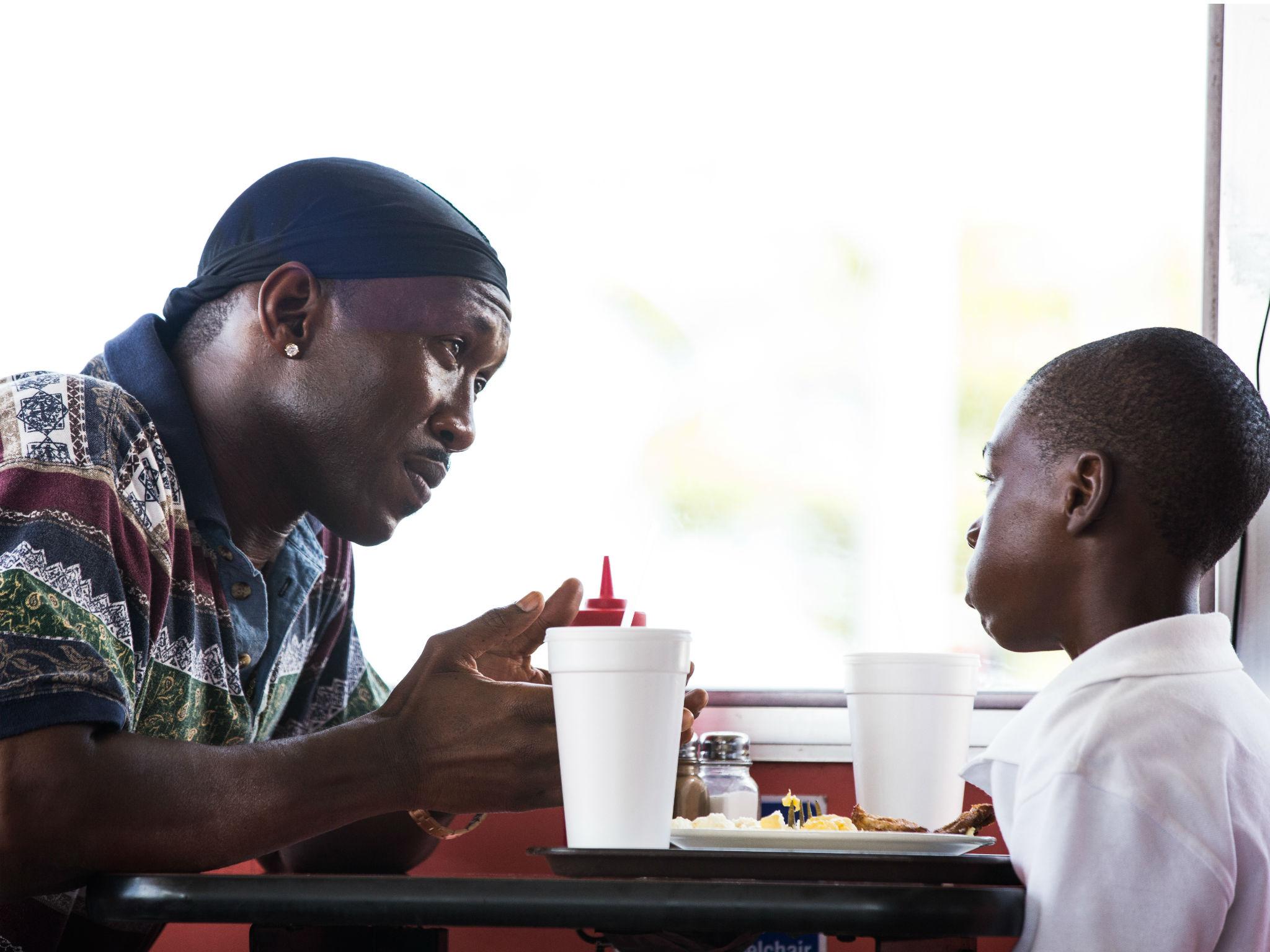Moonlight's Barry Jenkins interview: 'This was so personal for me'
'Moonlight's' writer and director, whose coming of age story about a young gay black boy in Miami was nominated for eight Academy Awards, felt particular resonance to the boy's drug addict mum, and what she had in common with his own mother

Your support helps us to tell the story
From reproductive rights to climate change to Big Tech, The Independent is on the ground when the story is developing. Whether it's investigating the financials of Elon Musk's pro-Trump PAC or producing our latest documentary, 'The A Word', which shines a light on the American women fighting for reproductive rights, we know how important it is to parse out the facts from the messaging.
At such a critical moment in US history, we need reporters on the ground. Your donation allows us to keep sending journalists to speak to both sides of the story.
The Independent is trusted by Americans across the entire political spectrum. And unlike many other quality news outlets, we choose not to lock Americans out of our reporting and analysis with paywalls. We believe quality journalism should be available to everyone, paid for by those who can afford it.
Your support makes all the difference.Barry Jenkins is sitting by the window in a hotel suite high up in a Rotterdam skyscraper just a day after his second feature Moonlight has been nominated for eight Academy Awards. A calm presence, he doesn’t seem in the slightest resentful that he is in Europe in the dead of winter on an exhausting promotional tour for his movie, when he could be back home in LA basking in the pre-Oscars adulation.
“Surprised is the wrong word,” Jenkins suggests when asked if he has been taken aback by just how many awards nominations Moonlight has been picking up. “I was proud of the film. I thought we had done good work. But I have friends who’ve made really great work which no-one ever sees – so you never know how that is going to play out.”
Moonlight is a coming of age story in three parts that tells the story of Chiron, a young, gay black boy growing up very poor in a rough part of Miami. Although it is based on Tarell Alvin McCraney’s play, In Moonlight Black Boys Look Blue, Jenkins freely admits that McCraney’s story had a very strong personal resonance for him. In particular, the character of the drug addicted single mom Paula (brilliantly played by British actor Naomie Harris) is like Jenkins’ own mother.

One reason why Moonlight has so enraptured audiences and critics is that it deftly and continually defies expectations. The streetwise drug dealer Juan (Mahershala Ali) turns out to be one of the most sensitive and selfless characters in the film. The frazzled, drug addict mother is devoted to her son in her own delinquent way. The sensitive and seemingly passive Chiron (“I ain’t soft”) eventually reveals hidden reserves of aggression as well as an ability to soak up punishment.
McCraney’s original play had been inspired by his relationship with a local drug dealer who, when he was still a boy, had taken him under his wing and acted as a surrogate father figure. “Because this was someone who existed in Tarrell’s life, he was never just a drug dealer. He was always a fully fleshed human being,” Jenkins explains. In most movies, he adds, a black drug dealer is “just a black drug dealer.” The point about Moonlight is that we see other sides of the character and other parts of his life. “For me, drug dealing is something that a man, this man, does. It is not the totality of who he is.”
Jenkins never set out to make a film that could “apply to everyone and that everyone could see themselves in. It was more about trying to do the best job we could to show off these characters - to show their lives.“ He describes Moonlight as “immersive cinema” and talks about how he wants the audience to see events from the perspective of Chiron.
“There was a scene where Naomie as Paula meets Chiron in the courtyard, right before she is going to take the money out of his pockets,” Jenkins says, describing an uncomfortable moment in Paula steals her son’s money to feed her drug habit. “I remember filming that scene and thinking that because this was so personal for me, I was feeling things as a human being who had lived this that the audience wasn’t, that the camera wasn’t conveying to the audience.”
In order to ensure that the audience felt the full emotional force of the boy’s sense of betrayal, Jenkins shot the scene from the boy’s point of view, so that viewers had the sense they were looking straight into the mother’s eyes as she spoke to camera.

Jenkins chose Naomie Harris after she was recommended by Brad Pitt’s production company, Plan B. At first, Harris was reluctant to play a drug addict. Jenkins recalls explaining to her: “‘You’re actually playing a version of my mom and I would never create a version of her that didn’t have her full humanity.’”
At the time, Harris had been busy promoting Bond movie Spectre in which she played Miss Moneypenny, but threw herself into preparing for Paula’s role.
“She has never done drugs, she’s never had a drink of alcohol. She is totally different to who this character was in real life, but I trusted that when she showed up, she would have this presence,” Jenkins says.
On the very first scene they shot, he asked her to perform direct to camera. When she agreed, he realised: “We were working from the same place and that wherever I need to push her, she’d be willing to go. It was just a beautiful experience.”
At the end of one of the chapters, Chrion does something brutal to one of his tormentors. It’s a cathartic moment and some spectators have whooped in approval. But when Jenkins watched the film at the Toronto Festival, there was clapping alongside one or two gasps. He himself doesn’t see any triumph in the scene. “There’s a physical scar on the bully but there’s a psychic scar on Chrion,” he says of a moment which represents a symbolic loss of innocence for the boy, even as he asserts himself.
The film was shot in Miami, which is where Jenkins himself grew up. He describes the city as a character in the story: “The essence of it, the atmosphere of it, the spirituality of it, it had to be there. It couldn’t be anywhere else. It would have been a different film if it wasn’t set in Miami.”
When the Oscars take place, Moonlight is strongly tipped to win at least some of the major awards. Jenkins himself isn’t allowed to vote: having directed only two features, he hasn’t yet been invited to join the Academy.
This time last year, there was a furious controversy about what filmmaker Spike Lee called “another all white ballot” at the Oscars. Jenkins was in post-production on Moonlight at the time and followed the debate with interest, little realising that a year later, he would be an Oscar front runner himself.
“The film industry I work in is not homogenous. I think what all that commentary [last year] was about was trying to have all these governing bodies reflect the industry that we work in, the world we live in,” he notes of what appears to have been a transformation of the event since last year’s row. The Academy pledged to double the number of female and minority members by 2020, and this year’s nominations are already among the most diverse in history. Jenkins welcomes the work that has gone on to “bring voices from the margins to the centre”.
The challenge for him now, win or lose at the Oscars, is to follow up on Moonlight. He doesn’t want to talk about future projects but the trade press has reported he’s in the frame to direct a TV adaptation of Colson Whitehead’s novel The Underground Railroad, the story of a slave who flees a Georgia cotton plantation and is pursued by a ruthless slave catcher.
He insists that he will approach any future project in exactly the same painstaking way as he did Moonlight: “When this is all done, I am going to open my notebook [on the next project] and you know what is going to be there: a blank page. And it is going to take the same amount of work to fill it as on this one. As a writer, a blank page will humble the hell out of you. It always does and it always will.”
'Moonlight' is released on 17 February
Join our commenting forum
Join thought-provoking conversations, follow other Independent readers and see their replies
Comments